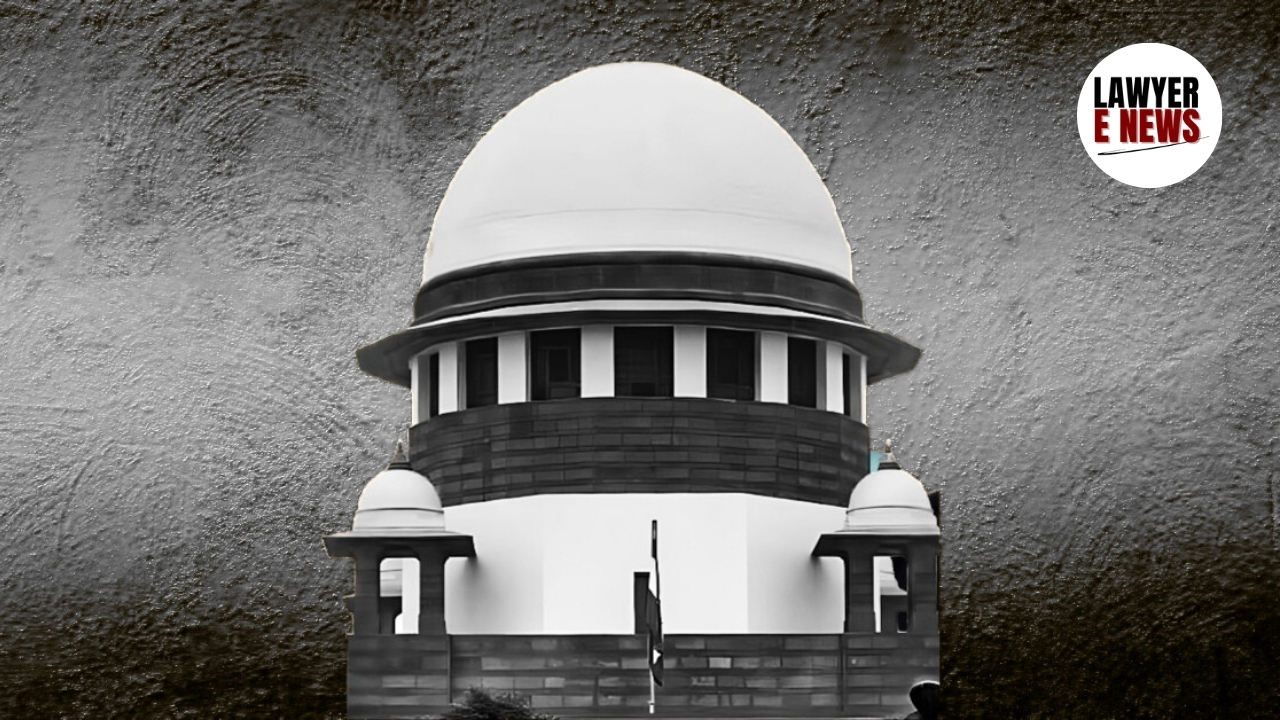-
by Admin
16 February 2026 1:47 PM



“We Find That the Respondent-State Was Not Right in Selling the Car” – SC Orders Bihar to Compensate Innocent Owner for Wrongful Confiscation. In a striking indictment of state overreach under the guise of prohibition enforcement, the Supreme Court of India delivered a strongly-worded judgment, holding that the Bihar government acted unlawfully in confiscating and auctioning the car of a man who was not even accused in a liquor case. The Court observed, “The appellant was not the person who was found in possession of the car when the liquor bottle was recovered... The respondent-State was not right in selling the car.”
In a case that began with a single bottle of Contessa 3X Rum, the Court highlighted how prohibition law was weaponised against an innocent car owner, whose vehicle was seized, declared forfeited, and then sold off in defiance of court directions. After navigating multiple writs, appeals, and a contempt petition, the petitioner finally found reprieve at the doors of the apex court.
On December 27, 2020, Sumit Kumar, a resident of Bihar and the owner of a Maruti Swift Dzire (Reg. No. BR01EJ9395), had given his car to one Badri Nath Chaudhary, reportedly to help take his mother to the hospital. That night, the Bihar Police stopped the vehicle and discovered a 750 ml bottle of liquor under the seat. The driver, found intoxicated, was booked under the stringent Bihar Prohibition and Excise Act, 2016. Sumit Kumar was not present, not found guilty, and not accused in the FIR.
Yet, the police seized his car, and the Senior Deputy Collector, Patna, passed an order on June 29, 2021, confiscating the vehicle and allowing it to be auctioned. Despite the owner repeatedly approaching the High Court and the competent authorities to release his car or allow him to contest the confiscation, the vehicle was auctioned on July 12, 2022, for ₹3.71 lakhs—while its insured value stood at ₹6.40 lakhs.
At the heart of the case was a grave question of justice: Can a person’s property be taken away and auctioned solely because it was used by someone else to commit an offence—without any wrongdoing by the owner himself?
The Supreme Court answered firmly in the negative. It noted that the appellant was not implicated in the criminal proceedings, and that his car was seized simply because a bottle of liquor was found in it.
Rejecting the Bihar government's justification that the prohibition law does not distinguish based on quantity or ownership, the Court remarked:
“The appellant’s confiscated vehicle could have been released to him after the levy of an appropriate fine or other penalty, in light of the small quantity of liquor involved and no link of the appellant to the recovery of that liquor.”
What added to the Court’s dismay was that the State had acted in violation of a status quo order passed by the High Court, which had allowed the appellant to exhaust legal remedies. Despite this, the car was sold without due notice.
“The respondent-State has sold the appellant’s car in an auction without giving him due notice... and without letting him exhaust his statutory remedies,” the Court observed.
The Court also noted that the High Court had already found the State guilty of contempt, but had merely imposed a cost of ₹50,000—an amount far less than the car's value or the loss suffered.
“This did not balance the scales of justice evenly,” said the bench.
Ordering restitution, the Supreme Court directed the State of Bihar to pay ₹6.4 lakhs, the insured value of the vehicle, to Sumit Kumar within six weeks. The Court clarified that while this amount was less than the actual value of the vehicle, it would still restore some equity given that the auction had already occurred.
“The equities would be balanced if the value of the insurable interest is paid by the respondent-State,” the Court concluded.
While the Court acknowledged that the constitutional validity of the prohibition law is still under challenge, it refrained from commenting on that aspect and limited its relief to the “peculiar facts of this case.”
In a rare but emphatic expression of judicial disapproval, the Supreme Court condemned not just the confiscation of property from a non-accused, but also the State’s cavalier violation of court orders. The ruling is a powerful reminder that prohibition laws, however strict, cannot override basic principles of fairness and due process.
As the Court noted with quiet irony, “The detailed narration of facts indeed reflects the number of cases that have been preferred by the appellant to save his car, only because it contained a bottle of liquor (750 ml)!” The judgment restores more than monetary compensation—it restores confidence that the legal system still protects the innocent against the excesses of the State.
Date of Decision: May 7, 2025
